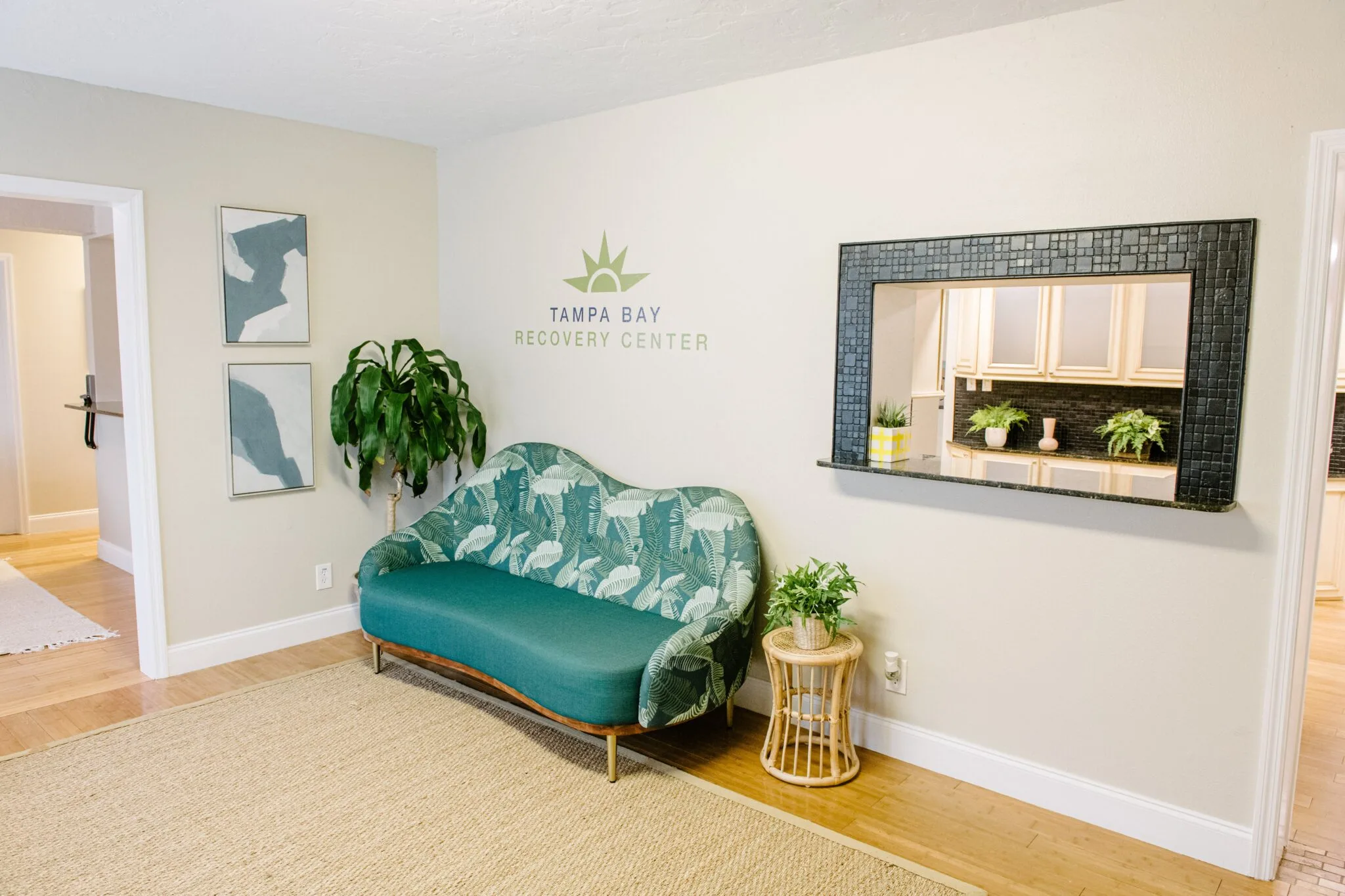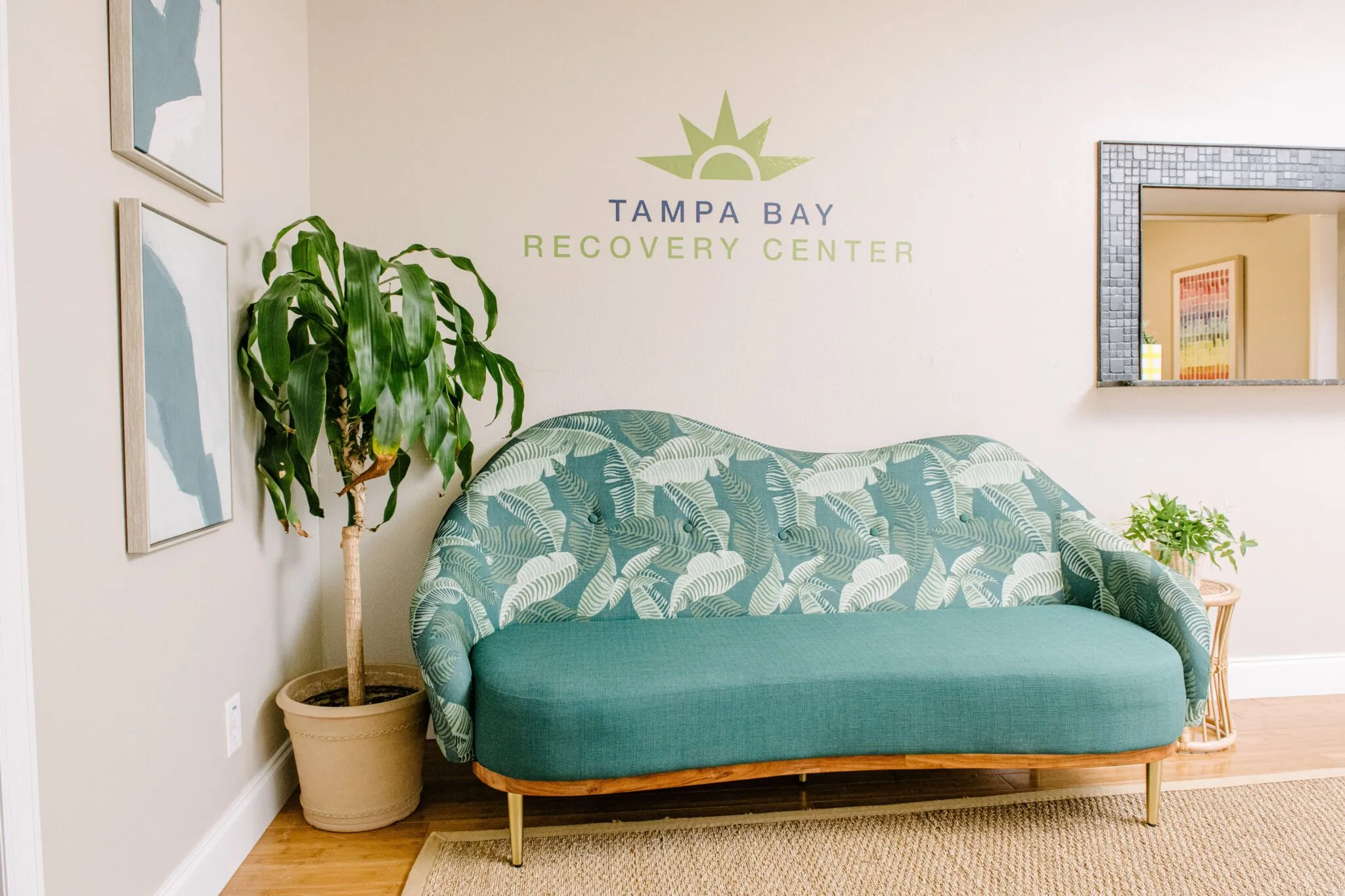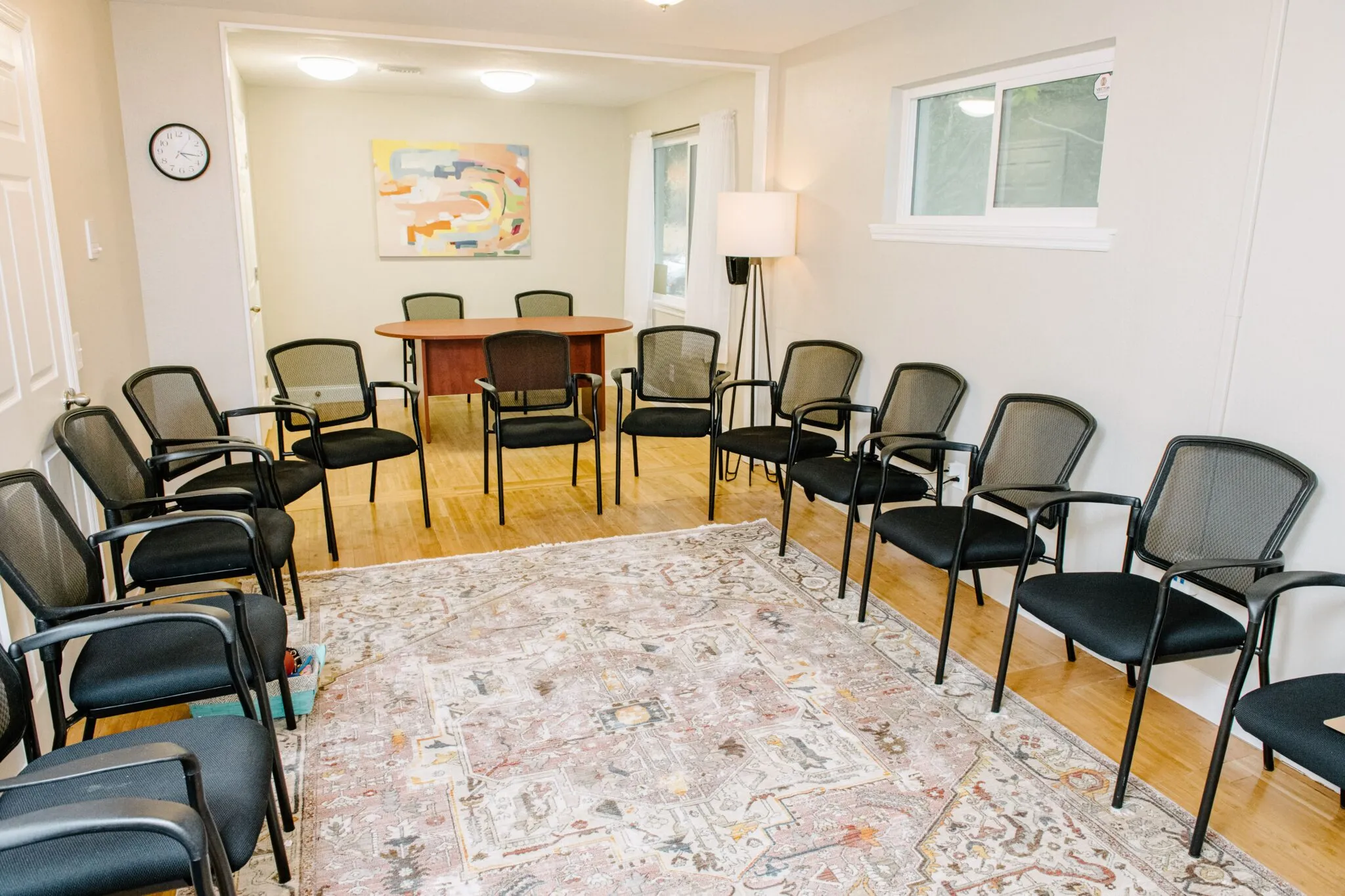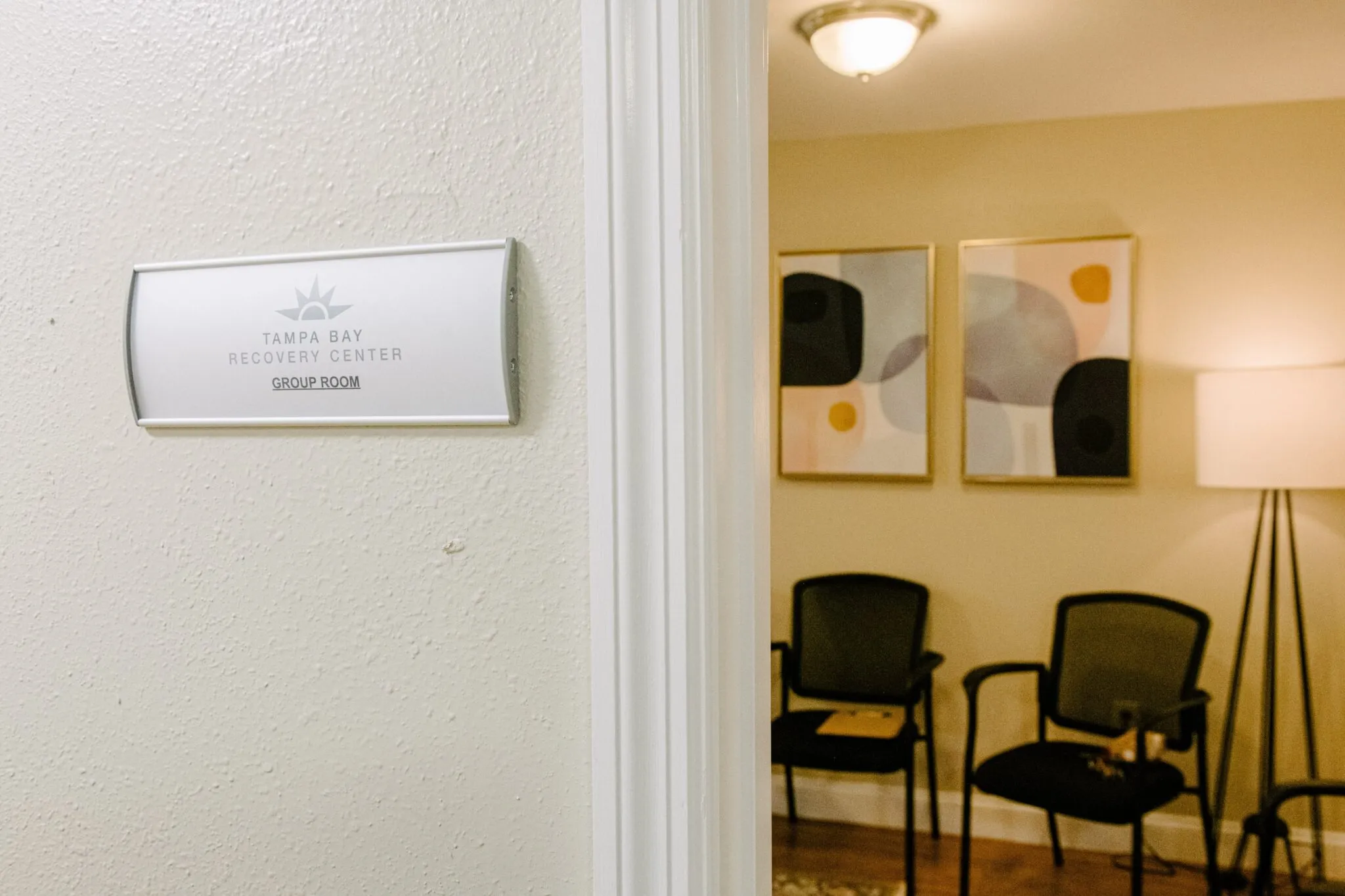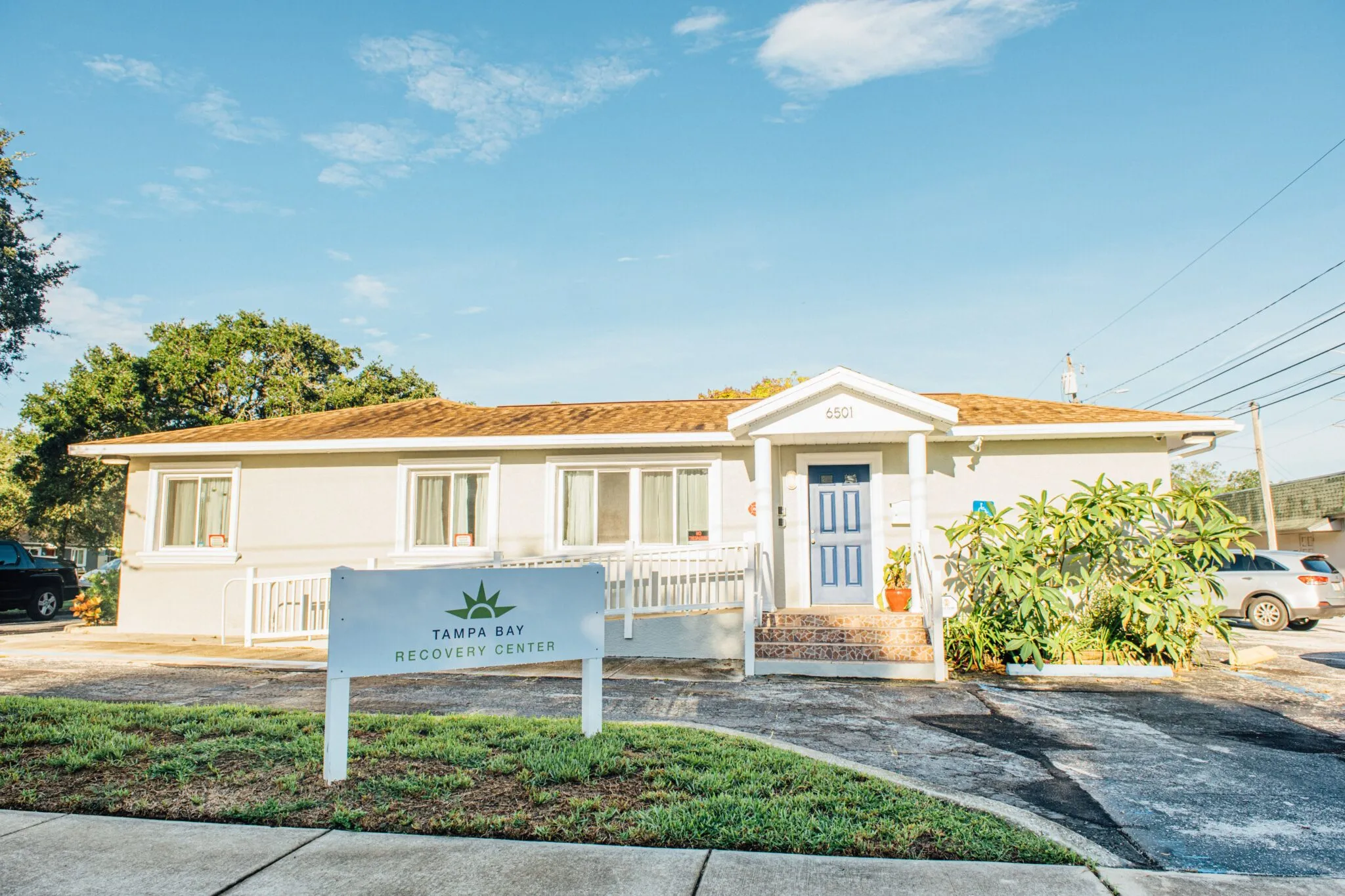Home Programs Intensive Outpatient Program (IOP)
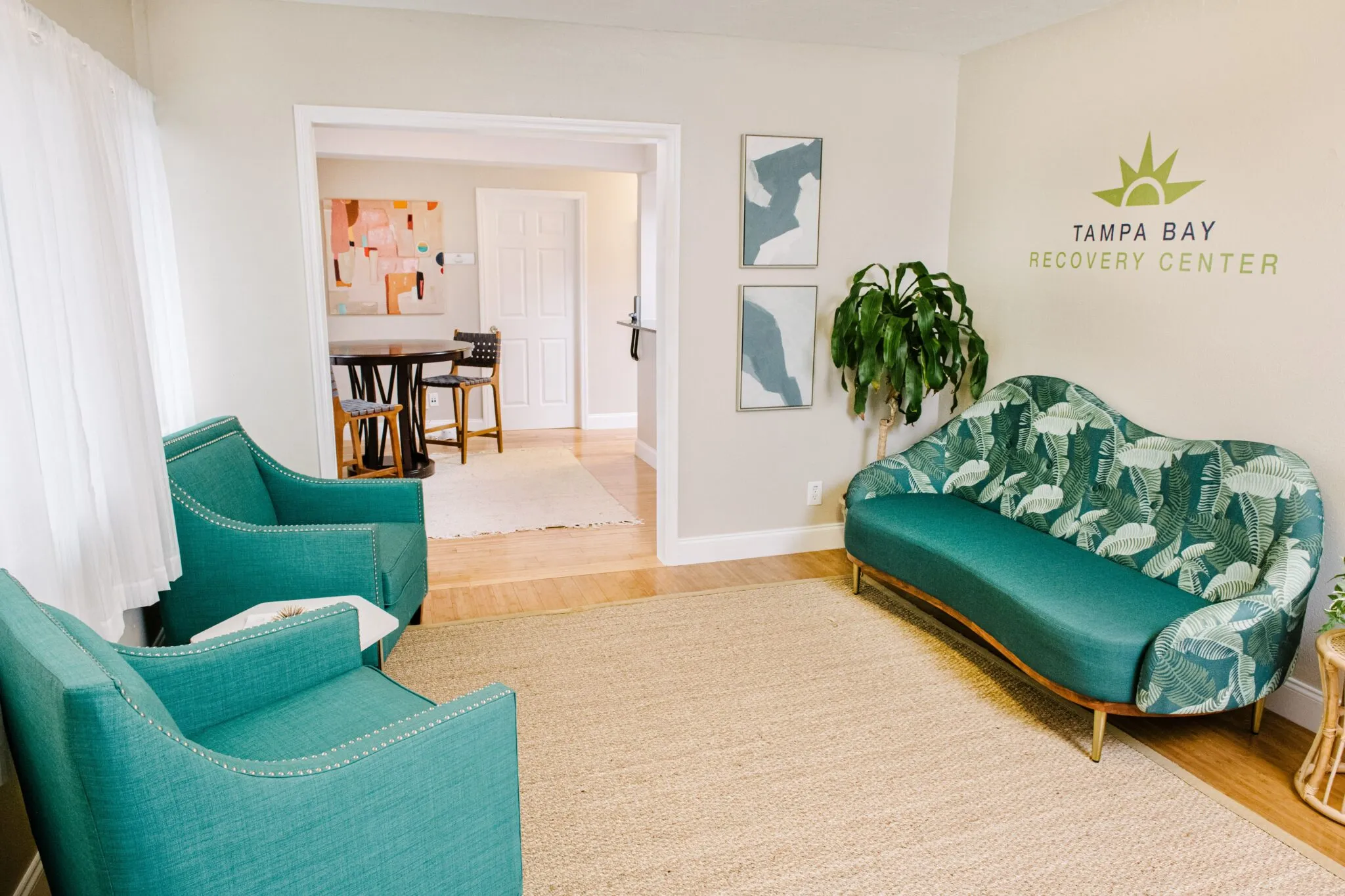
Intensive Outpatient Program (IOP)
Our IOP in Tampa, Florida, can help you transition from long-term treatment to everyday life in recovery.
At our Intensive Outpatient Program (IOP) in Tampa, our structured day and night programs enable those with alcohol or drug addiction issues to find the help and support they need while still maintaining employment, continuing school, and living from home. During treatment, the staff at Tampa Bay Recovery Center helps you learn to cope with stressors that contribute to substance use and mental health disorders. In an intimate group and individualized setting, clients can find the space to share their struggles, find relief, and create new patterns in their lives.
If you or a loved one are struggling, our rehab programs and IOP program can change the trajectory of your life and help you find recovery.
What Does IOP Stand For?
IOP stands for an intensive outpatient program. These types of programs treat mental health and substance use disorders. IOP programs help clients transition out of partial hospitalization programs (PHP) while still getting a substantial amount of support.
- An IOP is intensive due to the number of hours clients get during treatment. While an IOP requires less time than a PHP program, clients still attend IOP nearly every day.
- IOP programs are outpatient programs because clients do not live in the same facility as they receive treatment. Clients usually live at home or with family during IOP. Many live in a sober living home for additional support throughout IOP.
- Lastly, IOP is a type of treatment program because it follows a structure and schedule. Unlike standard outpatient treatment, an IOP runs for a specific amount of time and clients graduate their program upon finishing.
Clients are eligible for IOP when they do not require round-the-clock supervision. Our IOP program is often the next step once someone completes a partial hospitalization program (PHP).
After a person completes detox or a residential program for addiction, they think treatment is over. But, those are only the first steps. Because drug addiction, alcoholism, and mental health disorders are long-term, relapsing disorders, following up initial treatment with outpatient care helps tremendously.
Our IOP in Tampa Bay zeroes in on understanding how to navigate the early days of recovery including stressors, triggers, and cravings. In this level of care, clients do not have 24/7 care and support like they would in a residential setting. Our IOP program encourages autonomy and independence throughout treatment.
What Does an IOP Program Treat?
IOP programs treat mental health disorders, alcoholism, drug addiction, and dual-diagnosis disorders. Most clients in treatment for addiction also have underlying mental health symptoms. Because of this, our IOP program addresses these symptoms with therapy and peer support.
The following statistics from the 2022 National Survey on Drug Use and Health (NSDUH) highlight the need for dual-diagnosis treatment at addiction treatment centers:
- 84.2 million US adults had either substance use disorder (SUD) or mental health disorder
- 46.5 million US adults had SUD
- Of these adults with an SUD, nearly half, 21.5 million, had a co-occurring mental health disorder
In addition, since many symptoms of SUD and mental health disorders overlap, our IOP program in Tampa addresses both of these issues at the same time. That way, our clients get to the root of their presenting concerns for a long-lasting and successful recovery.
Take Back Control:
Contact Us Now
Addiction and mental health disorder effects the lives of millions of Americans each year. Contact Creekside Recovery Group today to get the help you deserve.
TOUR
Tour Our Intensive Outpatient Program
Daytime Intensive Outpatient Program
Our daytime IOP takes place Monday through Saturday from 9:00 AM to 12:30 PM. Daytime IOP is perfect for those just stepping down from our Partial Hospitalization Program (PHP) or are still need to continue employment or school.
Ready to Escape Addiction? Let’s get Started
Tampa Bay Recovery Center is a premier leader in the provision of addiction treatment services. If you or someone you love is in need of professional care to address a substance use disorder, reach out to us right now at (813) 733-8774 to speak with an admissions specialist who can get you started on the road to recovery.
What is IOP in Tampa Like?
When you arrive at Tampa Bay Recovery Center, we make a point to get to know you. Understanding your addiction history and needs allows us to help you set your treatment goals. In addition, IOP programs offer a variety of treatment options to best meet your needs in recovery.
Here’s everything you can expect at our intensive outpatient program:
Individual Therapy
Individual therapy sessions are offered once every other week. During this time, you’ll be assigned a primary therapist who will work with you to process triggers, childhood trauma, and maladaptive coping mechanisms, and help set up a relapse prevention plan to help you succeed when you’re not in programming.
Group Therapy
Group therapy is one of the most useful tools in our Tampa Intensive Outpatient Program. Group therapy helps individuals manage and process their feelings around addiction, mental health issues, and past behavior. Group therapy often looks like multiple people sharing their feelings about what they’re currently experiencing.
The amount of group therapy varies for each client depending on what program they attend. Group therapy can be a useful tool in helping find support from other clients who are experiencing the same emotions about early sobriety.
Medication-Assisted Treatment (MAT)
Upon admission into our program, clients meet with our Medical Director or Nurse Practitioner for a medical evaluation and/or medication management and medication-assisted treatment (MAT). During this collaborative process, clients discuss with our doctor what may be working for them and what may not be working for them. Clients in IOP regularly meet with our medical staff once every other week.
Holistic Treatment
Holistic treatment approaches offer clients additional ways to cope with daily stressors that could trigger symptoms. Clients can easily incorporate holistic approaches into their everyday lives. Some of our approaches include:
- Meditation
- Nutritional education
- Exercise
- Yoga
Trauma-Informed Care
Many clients at our IOP programs have a history of traumatic events that have shaped their lives. Oftentimes, these events lead to maladaptive coping skills like substance abuse or developing a mental health disorder. Trauma-informed care approaches ensure that the impact of trauma does not go unacknowledged throughout treatment.
It’s important to note that trauma-informed care doesn’t only relate to those with trauma disorders, like post-traumatic stress disorder (PTSD). Rather, this approach considers how the person’s history impacts their present need for treatment, regardless of their diagnosis. In other words, as stated by the Center for Health Care Strategies (CHCS), “Trauma-informed care acknowledges the need to understand a patient’s life experiences in order to deliver effective care.”
Drug and Alcohol Monitoring
While there’s typically less structure and accountability in IOP, we still ensure that our clients are on the right path to recovery. We conduct daily breathalyzer testing and weekly drug testing which also allows for alcohol use detection. We also provide other tools to maintain accountability including standardized meetings.
In addition, clients have the option to live in our structured sober living homes which are less than a half a mile from our clinical campus.
Is IOP the Right Level of Care For Me?
The first step in treatment for a substance use disorder is detox in Tampa. After that, a person either moves to residential or outpatient rehab. IOP works well for those who still need focused care but do not need to spend as much time in it as PHP programs and residential treatment require.
Someone who is coming out of a long period of addiction often excels in IOP. Similarly, it can work well for those who have been in treatment before but relapsed. Our intensive outpatient program in Tampa can help many people but is best if you have established the following:
- Completed detox or a residential program
- Already have a supportive environment around you
- Must continue maintaining employment, and school, or cannot leave home
- You are willing to put forth the effort to stay sober
Overcome Addiction with evidence-based, expert care.
What Is the Difference Between PHP and IOP?
IOP and PHP in Tampa do have something in common. Both take place during the day. People who participate in them may live at home or in sober living homes at night. However, there are some differences between the two types of programs. The first has to do with the time commitments involved and the program schedule. PHP typically takes place five to six days per week. The person is required to attend treatment for several hours per day.
Intensive Outpatient Programming in Tampa requires less time from each participant. IOP usually takes place anywhere from three to five days per week. The amount of time that sessions last per day varies from three to five hours.
PHP sessions often mirror those that happen in residential treatment. In addition, IOP is more of a step down from that level of intensity. IOP is better suited for someone who is closer to graduating from treatment than those who need PHP.
How Long Does IOP Last?
IOP in Tampa varies in how long it lasts. Each person is different in terms of where they are in recovery. In addition, each client makes progress at different paces. The average IOP treatment lasts at least 30 days. It can extend to ninety days or more.
Our team of clinicians will discuss with each person where they are in their progress during the IOP program. This will help them determine how long treatment should last. As with all addiction or dual diagnosis treatment, the longer a person commits to it, the more likely they are to enjoy long-term sobriety.
Does Insurance Cover IOP?
Tampa Bay Recovery Center accepts most major insurance, such as Cigna and Aetna, for all levels of care, including our IOP. Of course, the scope of your insurance coverage can vary depending on who your provider is and what is spelled out in your plan.
We realize that determining how you will fund treatment can be a significant concern. We also understand that it can be challenging to unravel the complexities of an insurance policy. The good news is that we are here to help. With your permission, we can contact your insurance provider to confirm your coverage and verify the extent of your benefits.
Please don’t let financial worries prevent you from contacting our center. A member of our team can answer all your insurance-related questions and clarify any matters you’re unsure about. Once you have complete and accurate information, you will be prepared to make the best decisions for yourself or your loved one.
Call 813-733-8774
Insurance Can Cover Up to 100% of costs
We Accept Most Insurance. Please Note We Are Not Affiliated With Or Endorsed By Insurance Companies.
CONTACT US
We Are Always Here For You
Our compassionate team is ready to assist you—contact us now for confidential support tailored to your needs!

